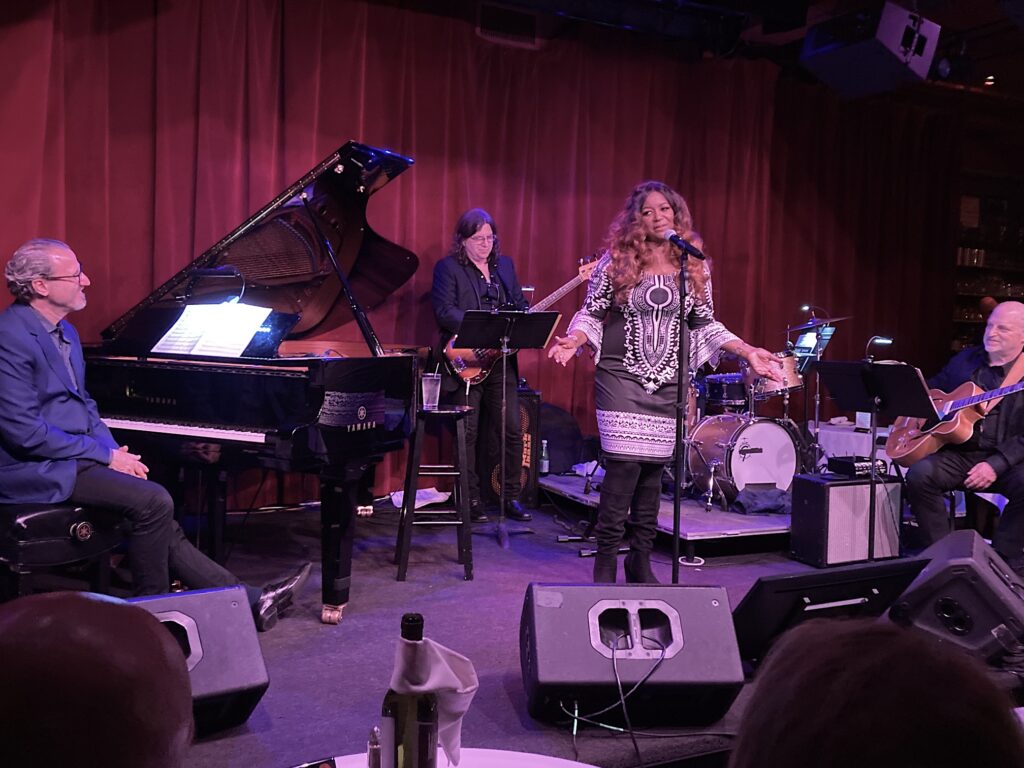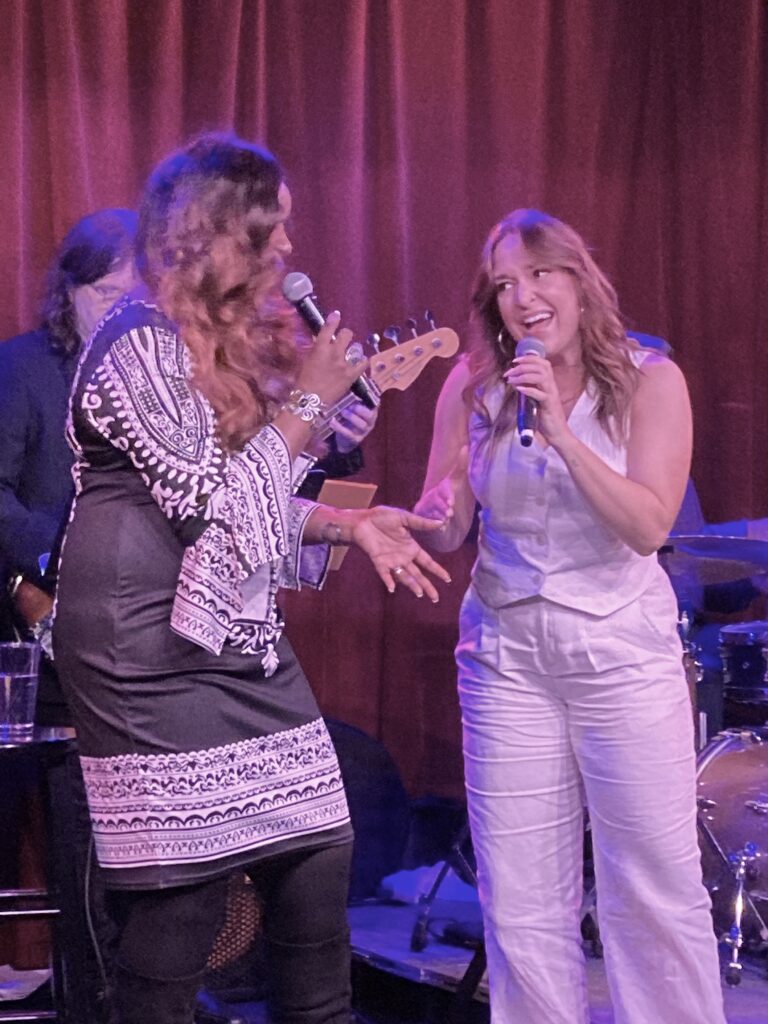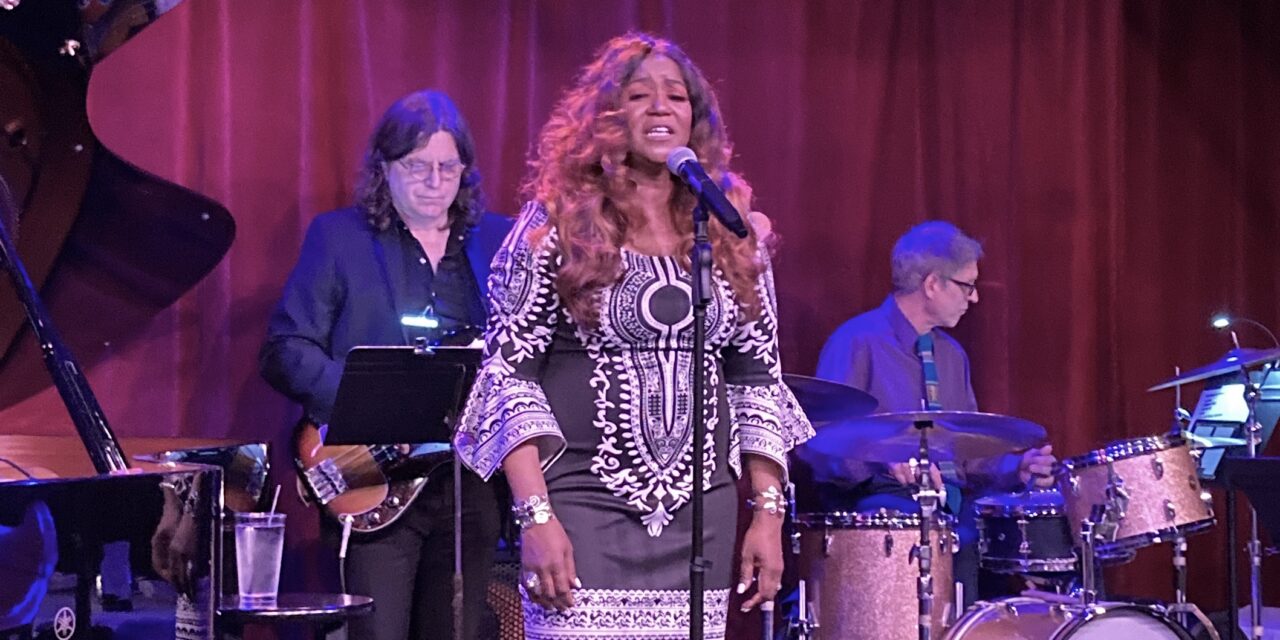By Marilyn Lester . . .
Nashville-based singer Wendy Moten has been a force in the music business for decades, mainly as an R&B vocalist, but it’s only since her appearance on the popular TV program, “The Voice” (ending as a first runner-up in December 2021), that she’s been thrust forward on the National stage. But it just so happens that before that, in 2014, she released an album entitled Timeless – Wendy Moten sings Richard Whiting. In marrying the Whiting canon with other standards and modern tunes in Wendy Moten Sings Richard Whiting (And Other Classics That Should Never Be Forgotten) at Birdland, the singer wowed an audience who simply couldn’t get enough of this splendid diva.

Attesting to her popularity, much of that audience traveled from points South to be in attendance. It was a vocal, energized crowd, often with a lively exchange between Moten and individuals present. Not your usual New York jazz/cabaret club dynamic, but sweet and handled beautifully by her—acknowledging her fans without interruption of her music. From her opening of a jazzy, swinging “All of Me” (1931, Gerard Marks, Seymour Simmons), Moten quickly established her musical chops with a fine, clear, authoritative tone. She possesses the kind of big voice that wowed them on “The Voice,” where that kind of power belt is expected, but she also knows how to modulate, control and adapt her belt. To prove it, she offered the song that drove them wild on that show, “Somewhere Over The Rainbow” (1939, Harold Arlen, Yip Harburg), for which she received one of several standing ovations during the evening.
As per the Birdland show’s title, many of the songs of the set were both well-known Whiting classics and lesser known numbers that deserve to be heard. That, as a performing artist, she has an appreciation of these standards of the Songbook is exactly what will keep them relevant into the future. Along with the well known “Too Marvelous For Words” (1937, lyric by Johnny Mercer) with a samba beat, she also offered “Guilty” (1931, Whiting with Harry Akst, lyric by Gus Kahn) and “I Can’t Escape from You” (1936, Leo Robin), among others not often sung. What’s key in featuring the Whiting songbook is that these songs, with updated arrangements—some done as blues or R&B, such as a spectacular “When Did You Leave Heaven?” (1936, Walter Bullock)—sound tremendously fresh. Moten is correct: they should never be forgotten.


Addressing more recent times, she delivered a heartfelt, lyrical “At Seventeen” (Janis Ian) and a blues-tinged “Still Crazy After All These Years” (Paul Simon), both with a new points of view. Her keen interpretive abilities were fully on display with the story-song “Ode to Billy Joe” (Bobby Gentry). With guest artist, Broadway’s Jessica Vosk, the pair sang a swinging, fun “Bye Bye Blackbird” (1926, Mort Dixon, Ray Henderson) with plenty of camaraderie and vocal talent. Adding texture to all of Moten’s selections was the vibrantly skilled and intuitive Paul Livant on guitar. Andy Ezrin’s piano likewise provided excellent support, with Graham Hawthorne drumming with particular nuance of percussive elements. On electric bass, David Santos (who is Moten’s long-time life partner) ably anchored the set.
May 16, 2022
Photos: Marilyn Lester


















